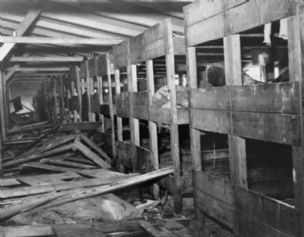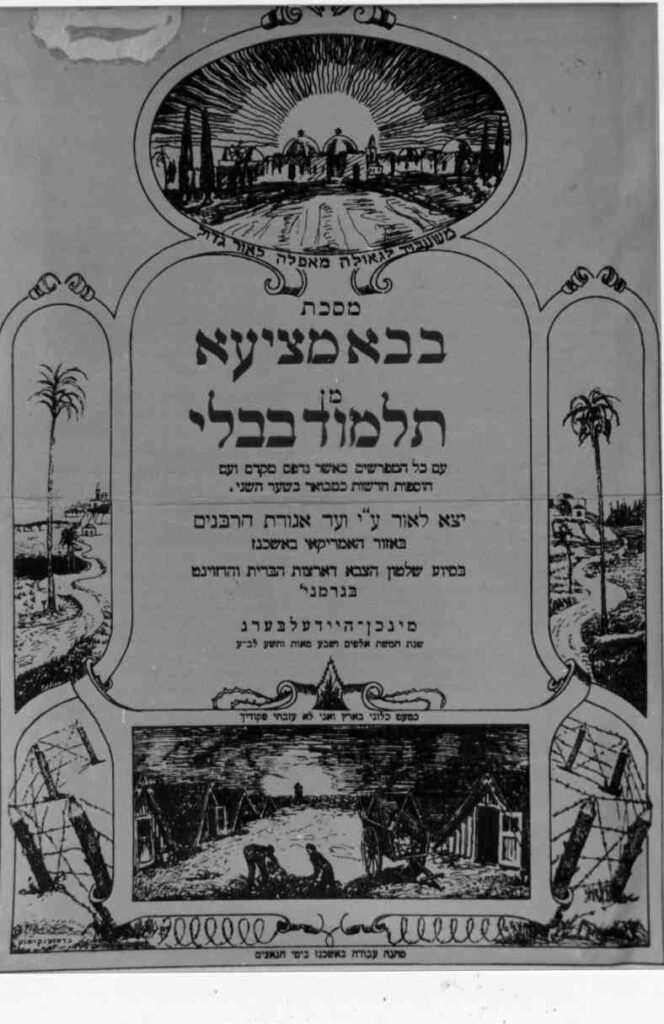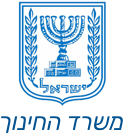Halacha (Jewish Law) Rules in Favour of Abaye, in the Disputes with the Mnemonic “Yud, Ayin, Lamed; Kuf Gimmel, Mem”
As part of the Daf Yomi program (learning a page of Gemara per day), Tracate Bava Metzia is now being learned. In synagogues, study halls, and Jewish homes worldwide, there are elegant volumes of the well-known and beloved tractate. There are big and small Gemaras, Gemaras with explanations and translations, and Gemaras with summaries and interpretations. In countless synagogues, teachers sit and explain the concepts that are familiar but sometimes difficult to understand. There are also sophisticated phone line systems where you can hear clear and pleasant lessons at the push of a button. It is like Bava Metzia in our time is calling every Jew: “Come and learn from me! My matters are accessible, straightforward, clear. Why stand outside?”
But people always learned Bava Metzia, even in times when they did not have conditions like we do, and even when they couldn’t at all. And so, when fatigue spreads over us and one’s eyelids are suddenly heavy, just before dozing off, just before giving up, it’s worth remembering figures from the not-so-distant past, and comparing. They were people completely like us; they believed in what we believe, and lived the way we do… like Pincheh about whom Holocaust survivor, Ephraim Rotenberg, told about (in his testimony, “Zachor” issue 7):
Exhausted from 12 hours of hard work without a break, shadows of men marched in rows, from the weapons factory, to the camp barracks.

The men were imprisoned in a huge building, former horse stables. They lay on bunks hanging on wooden poles, 4 stories high. The area of the bunks was limited. Each bunk was home to about twenty people. The bunks were cut into cells. Hundreds of cells.
In the hall called “Economia” the skeletons slept in work clothes. The overcrowding was terrible. Whenever one person turned over, the entire group had to turn over as well.
The goings in “Economia” – a nickname for the horse stables, which was partially lit… you pushed and picked up a meager portion of bread and went out into the yard to collect wood shavings to start a fire to cook the potatoes or “bake” from the flour purchased in the factory from the Polish workers at pull price and safely passed the the inspection at the camp gate. The damp wood did not respond to our efforts, refusing to burn and boil the stew, and by the time the fire lit and began to heat the pot, the policeman thundered an order: “everyone get on the bunks at this moment!”
We extinguished the fires. Each owner of a pot grabbed his own, ran to his bunk, and hoped to finish the cooking the next day. Lying down on the bunks, the hunger was nagging; tired and hungry we sank into slumber and dreamed of a slice of bread and a stew.
Pincheh, an approximately 50-year-old Torah scholar, remained bereft of a large family. His wife was caught in the bunker. The Germans brought her to the camp to force her to confess about her relationship to relatives or acquaintances. The woman was silent. She refused to give up her husband and sons. In spite of herself, she lashed out at the German and scratched his face. The Nazi pulled out a gun and killed her in their presence. The boys ran away from the camp, were caught, and shot.
Pincheh could not fall asleep. The sights of hell do not let him go. He forgot his grief by memorizing pages of the Gemara. After all, Gemara books cannot be found in the camp…
In the middle of the night, Pincheh got to chapter 2 of Bava Metzia. He held on to the phrase “Halacha (Jewish Law) Rules in Favour of Abaye, in the Disputes with the Mnemonic ‘Yud, Ayin, Lamed; Kuf Gimmel, Mem.'”

Opening page of Tractate Bava Metzia printed by the Vaad HaHatzala with the assistance of the Joint in Munich, Germany, for the Jews in DP camps. At the bottom of the page is a drawing of a Nazi labour camp.
The name of the amora (ancient Talmud scholar) Abaye touched Pincheh. Abaya is short for “Asher ben (son of) Yerucham, Yatom (orphan).” Abaye was born orphaned of his father and his mother died after his birth. He saw Abaye before his eyes. Orphanhood next to bereavement. Job next to Abaye…
Pincheh memorized and interpreted for himself the six halachas in which the halacha is decided based on Abaye’s view (as opposed to the other halachas in which Abaye and Rava differed and in which the halacha is always decided based on the view of Rava). Pincheh managed to decipher the letters “Yud, Ayin, Lamed:” despair, a false witness, a pole that stands by itself.
Pincheh tried to continued but could not remember what “Kuf, Gimel, Mem” stood for. He tried to remember but did not succeed. He could not fall asleep…
Pincheh climbed to the top bunk. Among the crowd of snoring people he recognized me, shook my head, and woke me up.
I rubbed my eyes curiously. I listened to Pincheh’s plight and I also tried to remember what the “Kuf, Gimmel, Mem” meant. What did it stand for?
And then. I was almost sure that I remembered. I answered him hesitantly:
An invalid wedding, opinions on a Gett (divorce document), and a person who sins in order to cause anger.
Pincheh’s eyes sparkled. He looked as happy as as if he had gained something precious, returned to his place to memorize, until the light of dawn.







